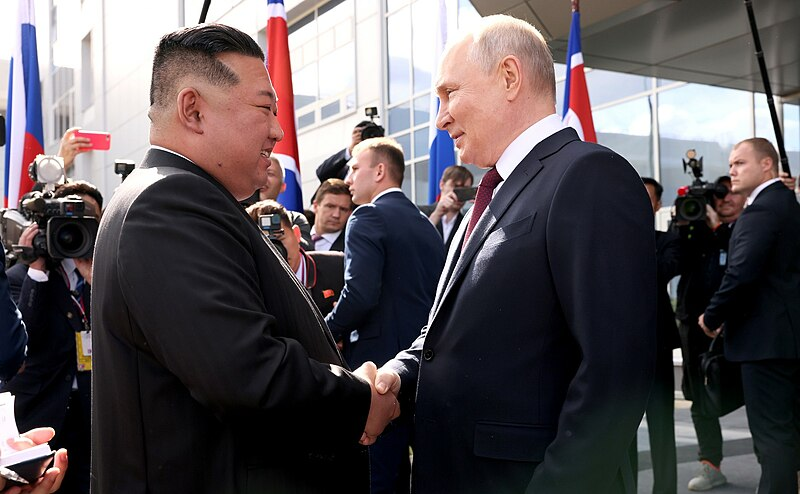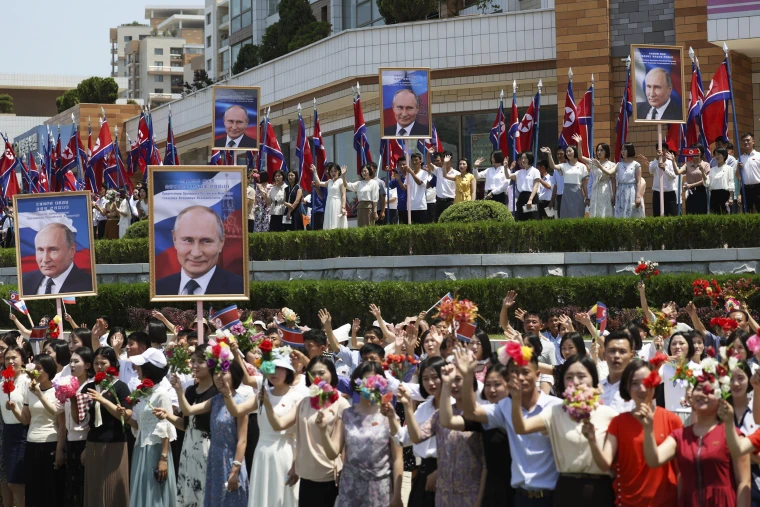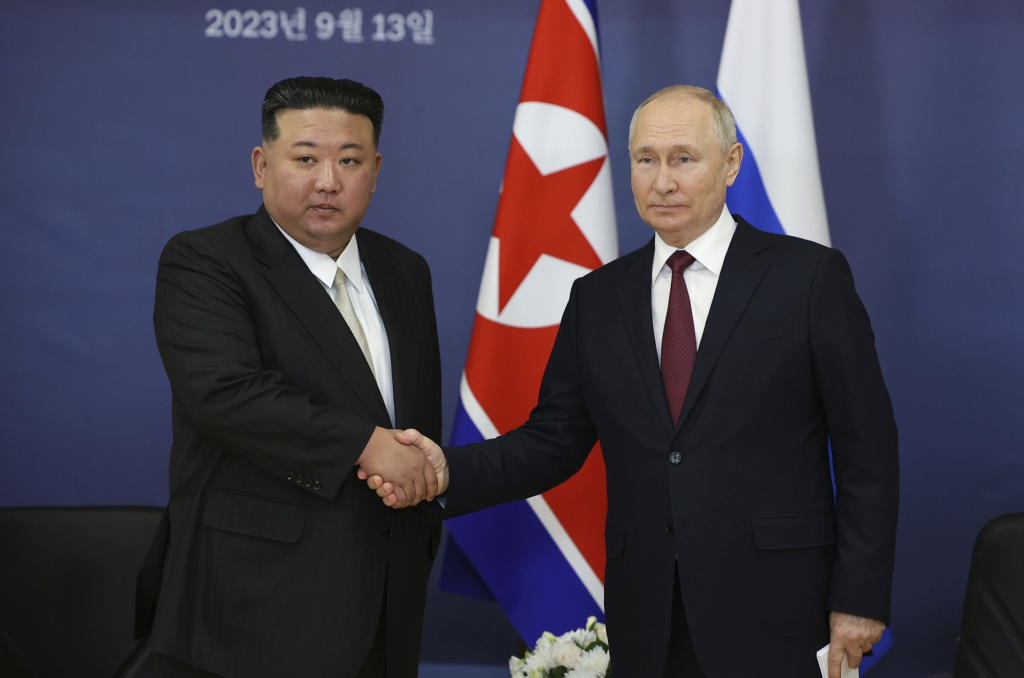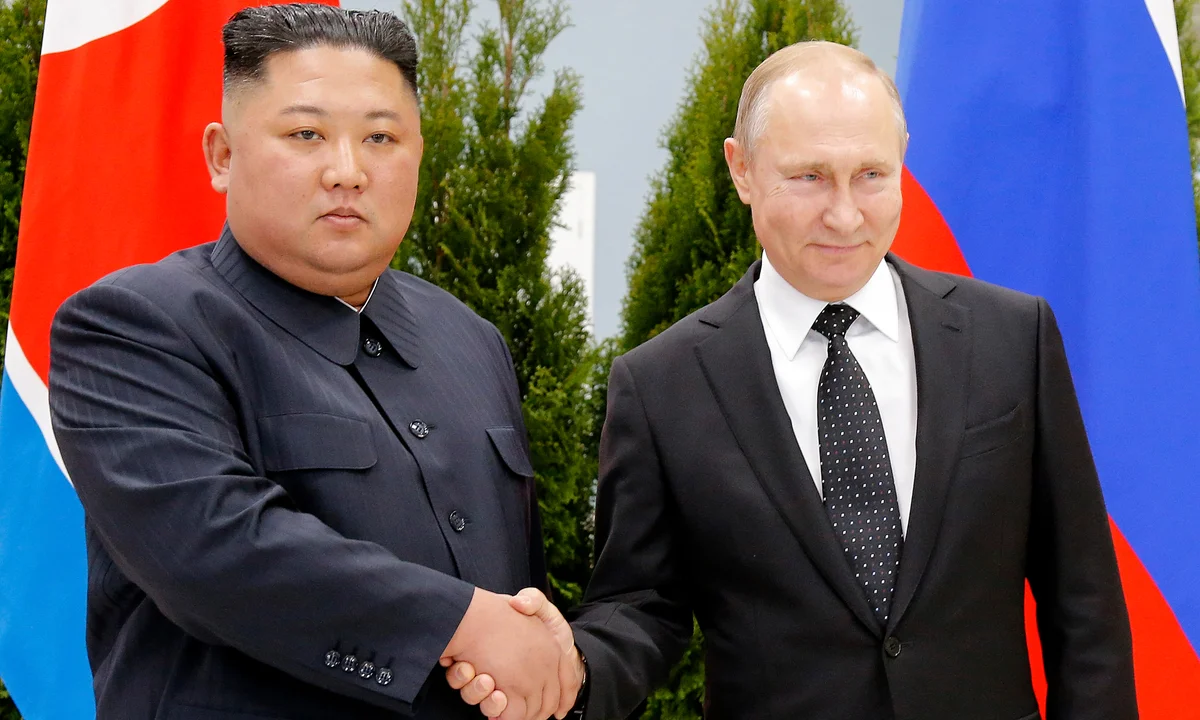As geopolitical alliances shift in response to the ongoing conflict in Ukraine, new dynamics are emerging that have left China navigating increasingly complex relationships. A recent concern for Beijing is the deepening cooperation between North Korea and Russia.
According to US officials, this relationship is raising alarms within the Chinese leadership, despite their strategic ties with Moscow.
Strategic Interests and Concerns
Relationship with both Russia and North Korea has long been complex and strategic. Russia provides an important counterbalance to Western influence, especially amid the ongoing conflict in Ukraine.
North Korea, meanwhile, serves as a geopolitical buffer between China and US-allied South Korea. However, the recent developments suggest that Beijing is cautious about the extent of Russian-North Korean cooperation.
US Deputy Secretary of State Kurt Campbell emphasized that its discomfort arises from its fear of losing control over North Korea’s actions.
Read : North Korea’s ‘Noise Bombing’ is Making Life Miserable for Dangsan Village in the South
China’s priority is regional stability, as any major conflict involving North Korea could destabilize the region and impact its economic and security interests. Beijing is particularly concerned about potential military escalations instigated by Russian support, which might not align with its own strategic goals.
Read : North Korea Sends Poop-Filled Balloons to South Korea: A New Low in Escalating Tensions
The collaboration between Pyongyang and Moscow extends beyond political rhetoric. Reports indicate potential Russian military assistance to North Korea, including advanced weaponry or nuclear technology.

Such developments pose a significant risk for country, as they could embolden North Korea to take aggressive actions that Beijing cannot control. For China, a stable North Korea under its influence is preferable to an unpredictable ally with growing autonomy and support from Moscow.
Geopolitical Implications in East Asia
The growing ties between Russia and North Korea also have broader implications for East Asia. China has traditionally been the dominant power in the region, but the increasing cooperation between its neighbors threatens to shift this balance.
The situation becomes even more complex when considering the US’s role in the region. The US has strengthened alliances with South Korea and Japan, aiming to counterbalance China’s influence.
According to Campbell, China fears that the Russia-North Korea alliance might push the US, South Korea, and Japan closer together, creating a more formidable opposition.

This could lead to a NATO-like structure in East Asia, something Beijing wants to avoid at all costs. Dennis Wilder, a former CIA assistant director, pointed out that China’s silence on the issue is significant. It suggests internal concerns about the strategic consequences of the growing partnership between Moscow and Pyongyang.
However, not all experts agree with this perspective. Some argue that China is more invested in maintaining a strong relationship with Russia than in worrying about North Korea. For Beijing, Russia’s success in Ukraine is critical because it sets a precedent for its own ambitions, particularly regarding Taiwan.
Andrew Shearer from Australia’s Office of National Intelligence argued that China’s support for Russia is unwavering and that any discomfort over North Korea is secondary to its broader strategic goals.
Diverging Perspectives and China’s Calculations
While the US and some analysts believe China is uneasy about the Russia-North Korea partnership, others suggest that Beijing’s silence is part of a calculated strategy.

Professor Emi Mifune of Komazawa University in Japan argues that China is fully aware of Russia’s plans and has chosen not to comment publicly. According to this view, Beijing’s silence is not a sign of discomfort but a deliberate move to avoid escalating tensions or revealing its true intentions.
China’s primary concern remains its long-term strategic objectives. Maintaining a stable relationship with Russia is crucial, especially as both countries face increasing pressure from the West.

North Korea’s role in this alliance is secondary but still important. Beijing might be willing to tolerate some level of Russian involvement in North Korea if it strengthens their overall position against the US and its allies.
At the same time, China cannot afford to let North Korea become too powerful or independent. Any significant escalation involving North Korea could draw China into a conflict it does not want.
Beijing’s goal is to maintain a delicate balance—supporting Russia while keeping North Korea in check. This requires careful diplomacy and strategic maneuvering, which might explain China’s apparent silence on the issue.

